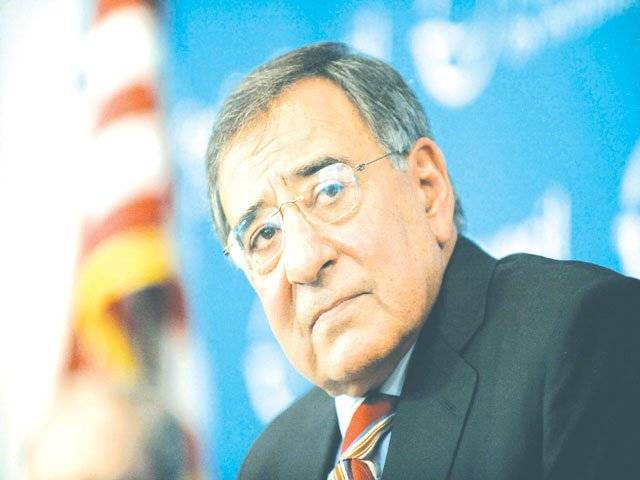WASHINGTON - US airstrikes aimed at Al-Qaeda leaders in Pakistan have been 'very effective, CIA Director Leon Panetta said, while claiming that there were few civilian deaths resulting from those strikes. Very frankly, its the only game in town in terms of confronting or trying to disrupt the Al-Qaeda leadership, Panetta told the Pacific Council on International Policy in Los Angeles in a rare public acknowledgment of the drone attacks inside Pakistani territory on Monday. Asked about criticism of the missile attacks by counterinsurgency experts, Panetta said he did not want to discuss specifics, but I can assure you that in terms of that particular area, it is very precise and is very limited in terms of collateral damage. Al-Qaeda remains the most serious security threat that we face...to US interests and our allies overseas, Panetta told the gathering organised by the Pacific Council on International Policy. Panetta said President Barack Obamas stated aim to 'disrupt, dismantle and defeat Al-Qaeda had already resulted in 'serious pressure being brought to bear on Al-Qaedas leaders, believed to be hiding in Pakistans border regions. There is ample evidence that the strategy set by the president and his national security team is in fact working, Panetta said. We do not expect to let up on that strategy. I am convinced that our efforts in that part of the world are seriously disrupting every operation that Al-Qaeda is trying to conduct and is interfering with their ability to establish plans to come at this country and we will continue that effort. Responding to a question, Panetta said unmanned drone strikes - whose use has caused tension with Pakistan - had been 'very effective in targeting Al-Qaedas leadership. I think it does suffice to say that these operations have been very effective, Panetta said. It is very precise, its very limited in terms of collateral damage. Panettas predecessor, Michael Hayden, was asked about the drone attacks on Pakistani territory shortly before he left office in January, but addressed it far less directly than Panetta. Im not going to talk about anything operational, and Im not confirming or denying how any of this happens, were not getting into that, he said. But he said he believed Al-Qaeda leaders had come to view Pakistans tribal regions as 'neither safe nor a haven. Two leading former advisers on counterinsurgency warfare, David Kilcullen and Andrew Exum, wrote in The New York Times over the weekend that the strikes have killed about 14 terrorist leaders in the past three years - but Pakistani officials have put the civilian death toll at 700. While US officials dispute that ratio, Kilcullen and Exum wrote, Every one of these dead non-combatants represents an alienated family, a new desire for revenge and more recruits for a militant movement that has grown exponentially even as drone strikes have increased. The persistence of these attacks on Pakistani territory offends peoples deepest sensibilities, alienates them from their government and contributes to Pakistans instability, Kilcullen and Exum said. They compared the tactics to British bombardment of the same region in the 1920s and French airstrikes on Algeria in the 1950s, arguing that the strikes were likely to remind Pakistanis of colonial rule. Agencies add: CIA Director Panetta said US does not know location of all Pakistans nuclear weapons. The admission by the CIA Chief was made amid growing concern about the countrys nuclear facilities falling into the hands of the Taliban or Al-Qaeda, and also claims that Pakistan is increasing its number of warheads. Panetta was asked if nuclear weapons in Pakistan are better guarded than those in the former Soviet Union. Obviously, we do try to understand where all of these are located, he replied. We dont have, frankly, the intelligence to know where they all are located. Right now we are confident that the Pakistanis do have a pretty secure approach to trying to protect these weapons. But it is something that we continue to watch because obviously the last thing we want is for the Taliban to have access to nuclear weapons in Pakistan.
Saturday, April 20, 2024
Location of Pak nukes not known

Pak economy improving, funds will be provided on request: IMF
9:57 PM | April 19, 2024
Minister advocates for IT growth with public-private collaboration
9:57 PM | April 19, 2024
Judges' letter: IHC seeks suggestions from all judges
9:55 PM | April 19, 2024
Formula 1 returns to China for Round 5
9:05 PM | April 19, 2024
Germany head coach Julian Nagelsmann extends contract till 2026 World Cup
9:00 PM | April 19, 2024
A Tense Neighbourhood
April 19, 2024
Dubai Underwater
April 19, 2024
X Debate Continues
April 19, 2024
Hepatitis Challenge
April 18, 2024
IMF Predictions
April 18, 2024
Kite tragedy
April 19, 2024
Discipline dilemma
April 19, 2024
Urgent plea
April 19, 2024
Justice denied
April 18, 2024
AI dilemmas unveiled
April 18, 2024
ePaper - Nawaiwaqt
Advertisement
Nawaiwaqt Group | Copyright © 2024





